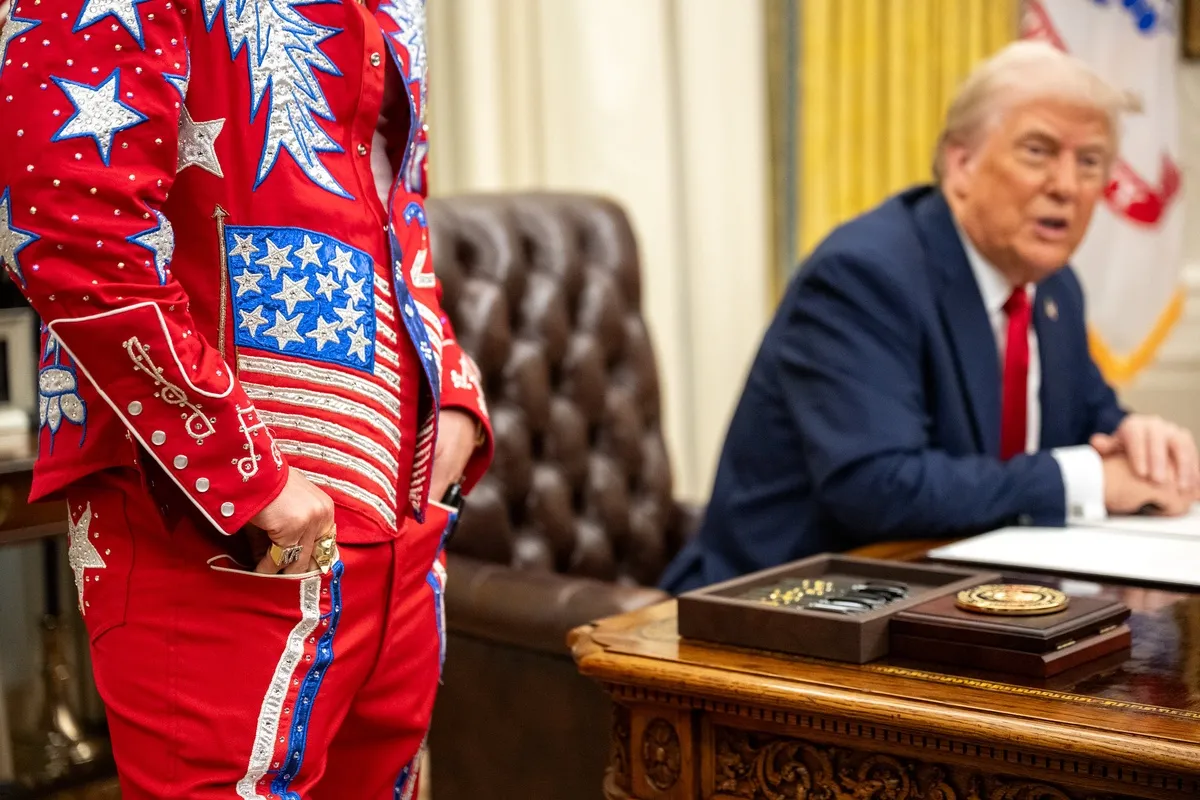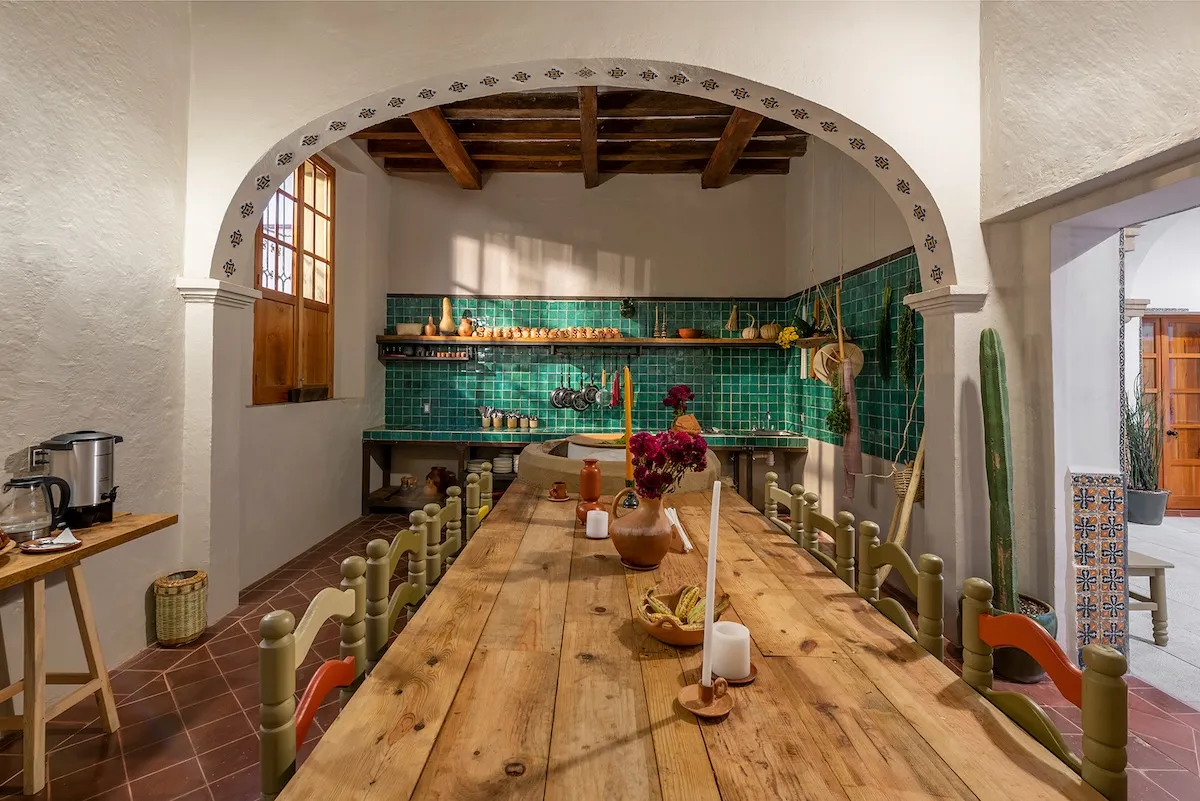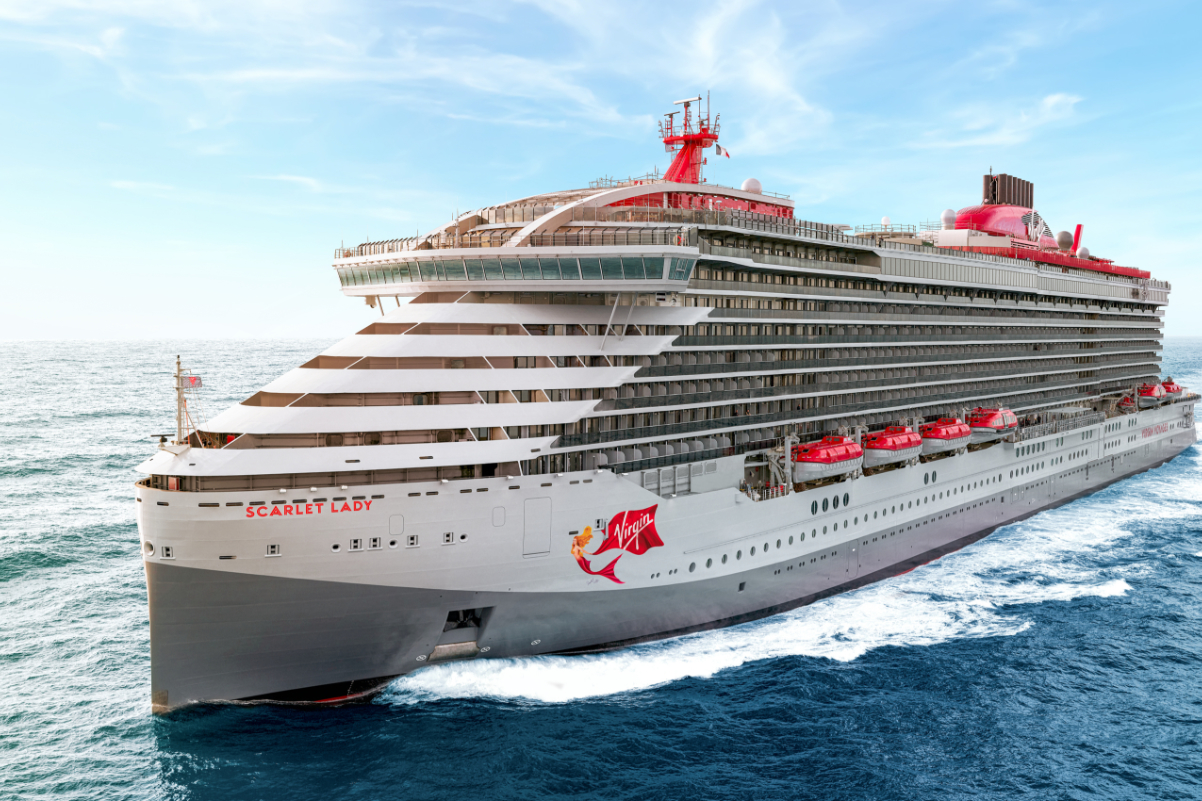Marriott and Starwood Shareholders Approve Merger To Become World's Largest Hotel Company
Skift Take
After a dramatic last few weeks in which Marriott International nearly lost out on its quest to acquire Starwood Hotels & Resorts to Chinese insurer Anbang and its investor group, both hotel companies hosted their respective shareholder meetings April 8 to endorse their newly agreed upon merger pact.
In separate meetings, shareholders from both Marriott and Starwood voted to approve the new combination. Stockholders of more than 97 percent of Marriott shares present and voting at the meeting, representing more than 79 percent of outstanding shares, voted in favor of a proposal to issue shares of Marriott common stock in connection with the transaction. Shareholders of more than 95 percent of Starwood shares present and voting at the meeting, representing more than 63 percent of outstanding shares, voted in favor of a proposal to approve the transaction.
Under the terms of the new deal that was accepted on March 21, Starwood's shareholders will receive 0.8 shares of Marriott common stock and $21 for each share of Starwood common stock at a deal originally estimated to be worth $13.6 billion. This was a significant increase from the original deal both companies agreed to in November 2015, in which Starwood stockholders would receive 0.92 shares of Marriott common stock and $2 for each share of Starwood common stock., for an estimated $12.2 billion. The new deal represents a 15.4 percent increase over the original deal, and a difference in price of $1 billion, give or take.
Marriott CEO Arne Sorenson, said in a statement, "With today’s successful stockholder approval milestone, we are that much closer to completing our transaction. Our teams continue to plan the integration of our two companies, and we are committed to a timely and smooth transition. We appreciate the stockholders' vote of confidence in our ability to drive long-term value and opportunity as a combined company."
Starwood CEO Thomas B. Mangas said in a release, "Today’s vote is a significant step toward closing, and we are grateful for the continued enthusiasm and support for this merger. There is no doubt that this transaction puts our company on the best path forward and we remain excited about the opportunity this combination will create for our stockholders, associates, owners and guests."
The total monetary value of the new merger deal will depend on the stock prices of both companies, but especially that of Marriott's. That stock price has fluctuated over the past few weeks from as high as $73.16 per share on March 18 to a current low of $65.53 per share on April 7 at market close. On April 1, the value of the deal was estimated at $13.3 billion. As of April 7, the total estimated value of the deal was about $12.2 billion, the same value from November's deal.
However, this new deal includes a sizable increase in cash, and the true total value of the deal, says David Loeb, managing director and senior real estate research analyst for Baird Equity Research, has yet to be calculated because it lies in the future. Loeb said the total value of the transaction, for stockholders, will continue to fluctuate even after the deal closes because so much of it is tied to stock prices. "People will be judging [the value of this agreement] based on where they got that [combined] Marriott stock and when they sell it in the future [after the merger]," he said.
Interestingly, in the past month, Marriott's stock price was highest on the same day that Starwood accepted a "superior" takeover bid from Anbang Insurance Group's consortium. The value of Marriott's shares also began to fall on April 1, the day after it was announced that Anbang was walking away from its long pursuit to purchase Starwood.
Some analysts and investors have speculated whether this recent fall in Marriott's stock price represented shareholders' dissatisfaction over the much more expensive purchase price for Starwood, and some even wondered if they would vote to disapprove the new deal. That, however, would not prove to be the case.
What Happens Now?
We shouldn't expect another bidding war to take place. In an interview with the Economic Times held prior to today's vote, Starwood CEO Mangas said, "It's not over until Marriott and Starwood vote on the deal on Friday. But that affirmative vote on both our shareholders' part will then preclude other buyers from coming in, and basically put the Marriott-Starwood merger as an absolute 'going-to-happen' event."
Mangas was not in attendance at the Starwood shareholder meeting. He traveled to India this week to extend Starwood's partnership with ITC, a Mumbai-based business group that owns 11 The Luxury Collection properties and one Sheraton hotel. Starwood is working with the group to bring on three new luxury hotels in Kolkata, Hyderabad, and Ahmedabad.
Going forward, shareholders from both Starwood and Marriott will no doubt be keeping a close eye on Marriott's stock price. The merger agreement is expected to close by June and, until then, both companies will work to receive anti-trust approval in the European Union and China (they already have clearance in the U.S. and Canada).
By April 30, Starwood's timeshare spinoff of Vistana Signature Experiences is also expected to close. Under this agreement, Vistana will merge with a wholly owned subsidiary of Interval Leisure Group (ILG), and any shares of Vistana given to shareholders will immediately be converted into ILG stock. Starwood's timeshare stock is currently valued at $5.83 per share. ILG shareholders are meeting April 20 to vote on the merger and once that deal closes, Starwood shareholders will own approximately 55 percent of the shares of the newly combined company, and existing ILG shareholders will own 45 percent.
It's also expected that until the Marriott-Starwood deal officially closes in June, both companies' respective integration teams will be working with one another to prepare for the merger, as well as identifying the more than estimated $250 million in synergies, or cost savings, that may arise from the two companies becoming one.
Once they make it official, Marriott and Starwood will comprise the world's largest hotel company, with more than 1.1 million rooms in more than 5,500 hotel properties throughout the world, spread out across 30 brands.
How We Got Here
The path to today's vote was anything but a smooth one. At first, it seemed like it would be fairly simple: In November, Starwood accepted Marriott's proposal, and by March, everything seemed to be on track with the combination.
However, on March 10, an unsolicited, all-cash rival takeover bid that topped out at nearly $13.2 billion emerged from Anbang Insurance Group and its consortium of partners, J.C. Flowers & Co. and Primavera Capital Ltd., and everything changed. This wasn't the first time Anbang had tried to woo Starwood; the Beijing-based insurance group had its eye on buying the company as far back as May 2015. By March 18, Starwood accepted this new fully financed and binding proposal from Anbang, and then three days later, by March 21, the Starwood decided to stick with Marriott after it sweetened its original November deal by about $1 billion.
Then, on March 28, word leaked that Anbang and its partners had yet again submitted a new bid that was likely to be superior to Marriott's. This time, it was for nearly $13.8 billion in cash, and it also would have covered any and all breakup fees Starwood would have to pay to Marriott if it changed its mind, yet again. Starwood was waiting for Anbang's investor group to make a binding offer, but it would never happen.
On March 31, as unexpectedly as Anbang entered the fray of a bidding war with Marriott, it abruptly walked away from a new deal with Starwood, citing "various market considerations." No one knows exactly why Anbang decided to walk away, but most suspect its aspirations were tempered by Chinese regulators who frowned on such a large investment in a foreign company.
That same day, Marriott and Starwood announced their deal would proceed, and both companies began urging their respective shareholders to approve their combination.
But what would have happened if Anbang had come back with a binding and fully financed bid? Anbang probably would have won Starwood. According to Marriott executive chairman Bill Marriott, the company would have collected its breakup fee and walked away from the deal if Anbang had resurfaced with a bigger, binding deal. On Wednesday, April 6, at the World Travel & Tourism Council Global Summit in Dallas, he said, "We were done."
Interestingly, when both companies' CEOs met on April 1 for a joint investors call, they stressed how "real" Anbang's deal was, and Mangas repeatedly referred to Anbang and its consortium as "formidable."
When asked by the Economic Times if he was rooting for a particular side during the bidding war, Mangas sidestepped the question. But he did note that an Anbang acquisition would build on Starwood's strategy for growth in China and the greater Asia region.
He said, "Clearly, Marriott is the only deal on the table and brings tremendous value for our shareholders. For a vast majority of our employees, this creates a tremendous career opportunity. Anbang would have presented a different type of driving scale. It would have probably created a much bigger opportunity to win in China and Asia more broadly. They would have had a different capital development strategy. Marriott is asset light and we are going asset light. Anbang probably would not have pursued that course, which meant different forms of investment."
What Can We Expect from a Combined Company?
As indicated by two recent investors calls, one hosted by Marriott on March 21 and another jointly hosted by both Marriott and Starwood on April 1, here are some highlights as to what we can expect post-merger:
All 30 brands will remain for now: Marriott doesn't have any immediate plans to eliminate any of Starwood's brands but that may change over time as it looks to "drive distinctions" between them. One Starwood brand that's most likely safe from being deleted is Element, a brand Sorenson described as "an interesting alternative to some of the housing rental services or shared economy platforms like Airbnrb and some others." However, expect some changes to the Sheraton brand: Marriott will be looking closely at individual Sheraton properties to see if they need to renovate, reflag, or be removed from the brand.
The loyalty programs will run "in a parallel way" at first, Sorenson said, but they will eventually be combined by 2018: The strength of Starwood's loyalty program, Starwood Preferred Guest (SPG), made it a top prize in the eyes of Marriott CEO Arne Sorenson, who has big plans for harnessing the power of a combined loyalty program to gain even more market share and battle online travel agencies. Today, both companies announced it won't be until 2018 when both programs are fully merged.
Mangas said, in his interview with the Economic Times, that both companies need to obtain antitrust clearance before they can begin to examine the futures of their respective loyalty programs, but that he doubts Marriott will do anything drastic to spurn loyal SPG members. "Members are worried that in a combination, these great benefits that they have enjoyed might be eroded," he said. "I've heard Arne [Sorenson] talk about how foolish it would be if they destroy those relationships. So the last thing they would want to do is pay almost $14 billion and lose all these great loyal customers."
There will definitely be job cuts at Starwood: Sorenson has been quoted as saying the cuts will begin at the top for Starwood, and they fall into the $250 million in synergies that will result from the merger. Starwood's top executives will receive some fairly sizable golden parachutes as part of the deal, and they can thank Anbang for the generous bumps in compensation they will receive as part of the newly revised deal.
What This Means for the Overall Hospitality Industry
All signs point to this: We can expect a lot more merger transactions like this going forward (perhaps without the dramatic last-minute takeover bids).
"I think this does put pressure on the other large companies to find ways to respond to the combined power of the Marriott and Starwood organizations," said Bjorn Hanson, a clinical professor with the New York University Preston Tisch Center for Hospitality and Tourism.
During the joint Marriott and Starwood investors call on April 1, Mangas hinted that this consolidation was just one of many to come in the hospitality industry.
He said, "I think clearly the Marriott/Starwood transaction has created a lot of chatter about further consolidation," later adding, "I think competitors will observe and see how it goes and decide how critical it is for them to play as this combination becomes not only the largest but probably the most effective and greatest hotel company in the world and it would be hard to beat. I think to the extent that they don't — that we execute well, I think they'll feel increased pressure for consolidation and it's an extremely fragmented market worldwide. Even though we will be the largest we still have a very tiny market share worldwide, which creates significant opportunity for us."
Also in June, AccorHotels's $2.9 billion acquisition of the Fairmont, Raffles, and Swissotel brands is expected to close. And just this week, on April 5, AccorHotels announced its purchase of Onefinestay, a London-based luxury home-sharing platform. Currently, there are rumors that Carlson Rezidor is eyeing a buyer as well, and some industry watchers suspect InterContinental Hotel Group is looking to boost its portfolio with more luxury brands.
"I actually think there will be continued consolidation among hotel owners and managers, as well as among brands," said Loeb. "The consolidation on the part of hotel ownership has been mostly private, and it involves the assembling of large portfolios by large private equity firms and similar kinds of groups. I think we'll see more kinds of consolidations like that and those by third-party travel managers. Owners and managers want to increase their market power and power with the brands. Third party managers have their own dealings with online travel agencies and want some scale to be able to deal with that as well."
In short, said Loeb, "I don't think this trend is done. We'll see more. We'll see more interesting transactions globally."
Will they be as interesting, or as much of a roller coaster ride as Starwood and Marriott's merger was? Probably not but, you never know.
Chronology of Marriott-Starwood-Anbang:
- Monday, March 14: Starwood Gets Takeover Bid by Consortium Led by Chinese Firm Anbang
- Monday, March 14: New Starwood Takeover Bid: The Players Behind the $13 Billion Offer
- Tuesday, March 15: Starwood Rival Takeover Bid: What It Means for Brands, Executives and Shareholders
- Friday, March 18: Starwood Accepts Anbang’s Takeover Bid, Marriott Plans a Counter-Offer
- Friday, March 18: Will Marriott Be Able to Top Anbang’s Offer for Starwood?
- Monday, March 21: Starwood Accepts Marriott’s Counter-Offer Worth $13.6 Billion
- Monday, March 21: Marriott Investor Call: This Is What We Have In Store for Starwood
- Wednesday, March 23: This Is How Marriott Could Lose Starwood to Anbang's Investor Group
- Friday, March 25: What Marriott Is Telling Its Shareholders About Starwood the Second Time Around
- Friday, March 25: The Inside Story of Anbang's Long Pursuit to Acquire Starwood
- Monday, March 28: Starwood Executives' Golden Parachutes Got More Golden With New Marriott Offer
- Monday, March 28: Starwood Takeover: Anbang Raises Offer to Upset Marriott Bid
- Monday, March 28: What Starwood's CEO Is Telling Employees About the Sale Process
- Tuesday, March 29: This Is What Marriott Has to Do to Keep Starwood from Anbang
- Thursday, March 31: Starwood Hotels Bidder Anbang Walks Away, Leaves Door Open for Marriott
- Friday, April 1: What Starwood's CEO Is Telling Employees About Anbang Walking Away
- Friday, April 1: Marriott CEO: Most Important Thing for Us Is the Loyalty Program
- Friday, April 1: Marriott-Starwood Investor Call: Anbang's Deal Was 'Very Real'
- Friday, April 1: The Inside Story of Anbang's Final, Failed Attempt to Acquire Starwood
- Monday, April 4: Starwood Leadership's Employee Message: 'We've Been Dealt a Tough Hand'
- Wednesday, April 6: Bill Marriott Says 'We Were Done' if Anbang Had Made Another Starwood Bid




